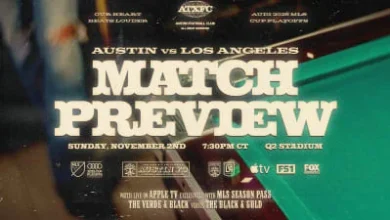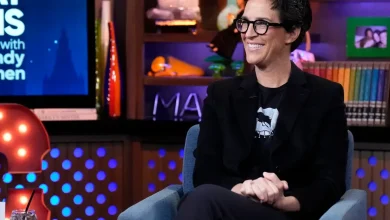There isn’t a big fix for childhood trauma in HAL & HARPER, only slow movements forward

Later, in the middle of the night, Dad returns to their room to apologize. He’s holding a stack of children’s books, practicing how to be someone he’s already failed at being. It’s the first time he’s read to them in years, and the scene’s not sentimental—it’s awkward, too late, slightly embarrassing. We also know that part of the reason he’s human again is because he can gain from this, from his kids: his agent wants him to write a children’s book, but he hasn’t spent any real time around his children in half a decade, despite being the only parent they have. But there’s something sacred in how Hal leans into it, how Harper sits up skeptical but still listening. She’s already too old for this. She knows how stories end.
Raiff’s direction is almost cruel in how long he holds on their faces. These adult actors playing kids, carrying the emotional intelligence of adulthood in child-sized dialogue. It shouldn’t work, but it’s astonishing. Reinhart, especially, threads the impossible line between innocence and exhaustion. You can see her thinking, Why now? Why not before? Every smile is a test.
The next morning, Dad takes them to Adventure Landing, the same mini-golf park Harper wasn’t invited to for a birthday that week. It’s all sunshine and motion and uneasy joy, a day that almost feels normal. There’s this beautiful bit where Harper wanders off to read alone, and for a second Dad thinks she’s missing. The panic in his eyes as he looks for her is so small and so real that it breaks the episode open. For the first time, Harper feels seen. Not as caretaker or problem or shadow, but as someone whose absence would matter.
The show’s great strength is its refusal to idealize that realization. This isn’t the big fix. It’s a single day. But it’s enough to make you believe that love can flicker back on, even after years in the dark.
When they get home, the quiet lingers. Hal draws; Harper doesn’t. They talk about sadness the way only kids who’ve seen too much can—plain, unadorned. “Are you sad a lot of the time?” he asks. “Sometimes,” she says. “But not all the time.” It’s a tiny thesis statement for the entire series. These are people learning that happiness doesn’t replace pain; it just sits beside it.
That night, Harper kisses Hal on the cheek and hugs him. It’s tender and strange and achingly pure, a gesture born out of gratitude and fear and the desperate wish to keep someone close. When the scene cuts to their adult selves, Harper tells him she loves him. He says he knows. The show could easily turn that repetition into melodrama, but instead it lets the words hang as ordinary, tired, true. Then her phone lights up: a Facebook notification. Oliver Jansen has added her back. The door to the past creaks open again.
If Episode 3 was about the father’s paralysis, Episode 4 is about motion: small, hesitant, forward. It’s about how memory can be both a wound and a lifeline. Raiff structures the whole hour around parallel acts of remembering: Harper reaching for her mother, Hal falling for Abby (who’s not sure she can trust him), Dad revisiting the home that won’t stop echoing. Everyone’s stuck, but they’re stuck together, and somehow that starts to look like healing.
Lili Reinhart carries the exhaustion of someone who’s been playing adult for two decades, and the glimmer of relief in finally being allowed to feel like a real person. Maybe this is what Charles Melton meant by Riverdale being their Juilliard—years of crying in a black bob (yes, I watched Riverdale), practicing sincerity through the absurd, all leading to this. Reinhart learned how to mean every word, even when the script got ridiculous. Hal & Harper is a show about endurance—about what happens when you keep going, keep feeling, keep remembering. Reinhart has all that practice, and it’s turned into something really special.





![2025 Galaxy Holding Group Guangzhou Open: Jones [74th] vs. Wang [163rd] Prediction, Odds and Match Preview](https://cdn1.emegypt.net/wp-content/uploads/2025/10/2025-Galaxy-Holding-Group-Guangzhou-Open-Jones-74th-vs-Wang-390x220.webp)